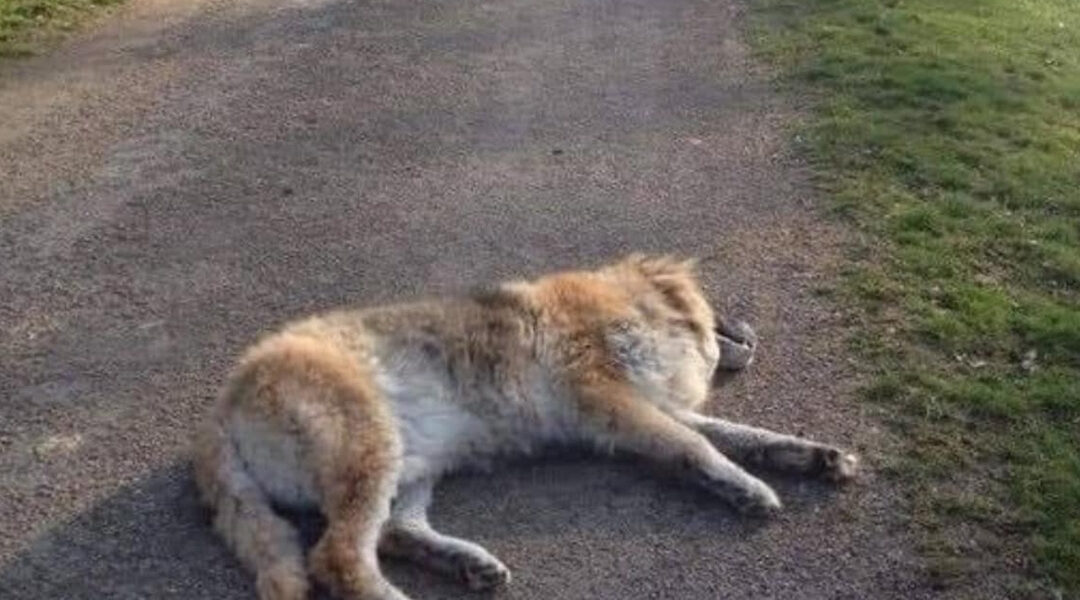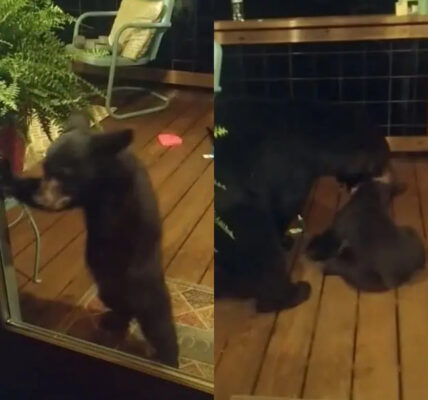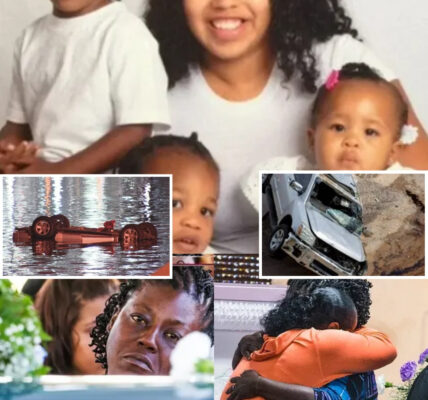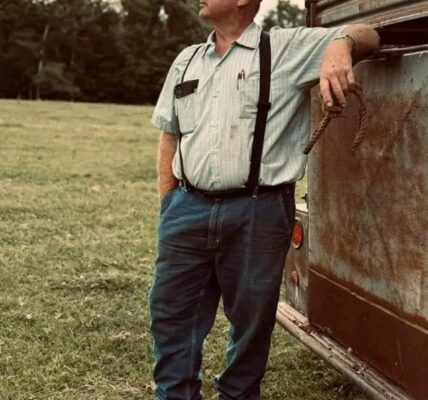
It was an ordinary morning, the kind that slips by unnoticed in the rhythm of family life. I was standing inside the house, cradling my baby, while my five-year-old waited at the end of the driveway for the school bus. Through the window, I watched the familiar scene unfold—quiet, simple, safe.
But then, from the corner of my eye, something shifted. A dark figure emerged at the bus stop. At first, I thought it might be a stray shadow, a trick of the light. But then I saw her clearly: a black, wolfish-looking dog, lean and ragged, moving with a wary gait. Her coat was scruffy, her ribs visible, her eyes uncertain yet searching.
My heart tightened.
Without hesitation, I slipped on my boots, pushed open the door, and sprinted toward the bus stop. My instincts shouted protection—protection for my child, but also for this strange creature who looked so out of place and so desperately alone.
I called out, half expecting her to bolt. Instead, she froze, studying me. For a heartbeat, she looked intimidating: wild, thin, and unpredictable. But then, as if a switch had flipped, her tail began to wag. Tentatively, she trotted toward me, lowering her head ever so slightly, her body language saying, “I don’t mean harm. I just need help.”
When she reached me, I knelt down and stroked her coarse fur. She was starving, her tongue dry with thirst. There was no collar, no tags—no sign that she belonged to anyone who cared.
I made the call to the pound, reporting that I’d found her. They asked if I could keep her until an owner came forward. I agreed, though something inside me already whispered that this encounter was meant to be more than temporary.
The very next day, a report came in—someone had lost a dog matching her description. Relieved, yet uneasy, I drove her back to what was supposed to be home.
When I pulled up, a woman stood outside. Mocha—though I didn’t know her name yet—looked at her, tail wagging hesitantly. I waited for the reunion, the joyful cries, the relief of a family restored. But none of it came.
The woman’s face was blank. She barely reacted.
“She’s always a pain,” she said flatly, waving a dismissive hand. “She runs away all the time. We hate her, honestly.”
The words hit me like a stone. Cold. Careless. Cruel.
I stood there for a moment, stunned into silence. No lecture would change a heart like that. No plea would teach her the worth of the loyal creature standing before us. So I turned without a word. And as I walked away, the dog—now Mocha—simply fell into step beside me, as if the choice had already been made.
That was ten years ago.
Mocha never once tried to run away from us. Not once. She curled herself into our family as if she had always belonged. She learned the rhythm of our days, the sound of our laughter, the comfort of gentle hands that stroked her without anger or impatience.
With time, her wild, ragged frame filled out. Her coat grew shinier, her eyes brighter. She chased after the kids, guarded the yard, and dozed in the sunlight with the peacefulness of a dog who knew—truly knew—she was loved.
Now she’s about thirteen. Our vet says she still has plenty of good years ahead. Every time she curls up at my feet or greets me at the door, I think about the life she might have had, unloved and unwanted. And I think about the moment she chose us—because that’s what it felt like. She wasn’t returned to her “owner.” She became part of our family.
We never planned to adopt her. But in the end, Mocha didn’t just find a home. She rescued us as much as we rescued her.
Some bonds don’t need words. They’re written in loyalty, in second chances, and in the quiet knowledge that love, once found, never lets go.




